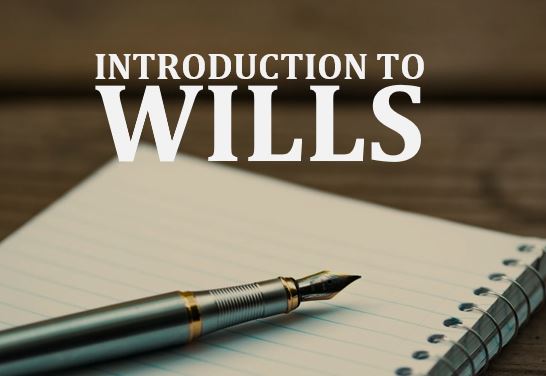Is that Will you wrote on a piece of notebook paper in high school still valid?
Okay, we’ve talked before about how important it is to make a Will, and how important it is that your friends, family and/or lawyer can find your will when you’re not around to tell them it’s hidden at the back of your sock drawer.
But there are different ways in which to create a Will. You have 3 options: A holographic will, a do-it-yourself will kit, or a professionally drafted will. All three, properly executed, are legal, but it’s important to understand the advantages (and disadvantages) of each option.
Holographic Wills
A Holographic Will is a will which is written entirely in your own hand. It’s inexpensive (all you need is a piece of paper, a pen, and legible handwriting), and doesn’t require witnesses or a notary public in order to be valid. However, it does have a number of potential disadvantages: Your intentions may not be expressed as clearly to others; the organization of the will may dispose of all your property in one fell swoop and leave nothing to others as you had intended; if your will is stored at the bottom of a desk drawer, it may be difficult to locate or probate; and without witnesses, your capacity to make a will may be challenged.
DIY Will Kits
Will kits, sold online (or in stationery stores) can be an attractive, low-cost solution. Most provide an assortment pre-written words/clauses, and all you have to do is fill in the blanks to itemize property, heirs, etc. This can be a good option for uncomplicated estates, but will kits have some caveats: It’s up to you to ensure that the will has been properly executed and appropriately witnessed; that you have included the necessary details; and that it’s stored in a place where it will be easily found when needed.It may be difficult to find the witnesses to guarantee their signatures for probate.
Professionally-Drafted Wills
A professionally-prepared will – one drafted and executed by a lawyer – is the most expensive of the three options. Â However, you may find that the cost is less than you think (many lawyers prepare wills for a set small fee rather than a large hourly retainer), while the advantages are significant. Â Having a lawyer prepare your will means you’ll get legal counsel, tax assistance, and probate fee-reducing advice; your will is stored at the lawyer’s office in a fire-proof safe; and lawyers are backed by errors and omissions insurance. Â This protection is particularly valuable for people whose property includes real estate (such as the family home), investments/RRSPs, Â and spouses and children or grandchildren as heirs.
This is not intended as legal advice. Please consult a professional licensed in Ontario to provide legal advice as specific facts may affect your particular circumstances.

